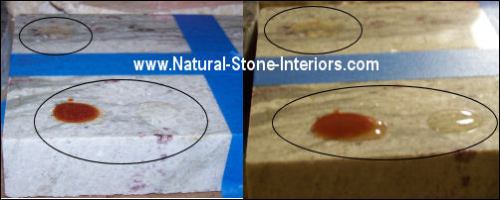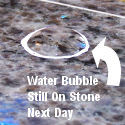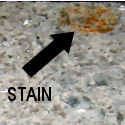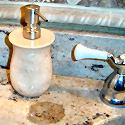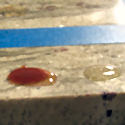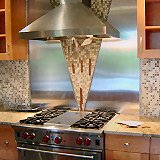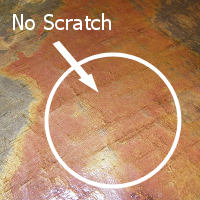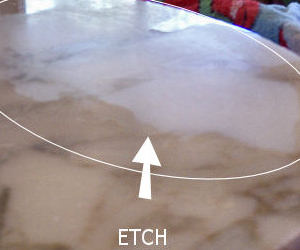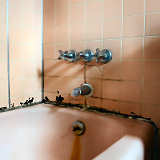 | ||||||||||||
|
Loading
| ||||||||||||
Sealing Granite & Natural StoneTo Seal Or Not To Seal?Sealing granite and natural stone with penetrating sealers, (also called impregnators), protects the structure of a natural stone.
Sealers protect your stone from within. They soak into the stone and fill in any open voids or pores so that a staining agent cannot. Or at least they make it really hard for a staining agent to soak in! Not all stones need to be sealed. Does Yours?
What Happens If You Seal A Stone That Doesn't Need To Be Sealed?
Or, you don't get all of the sealer off of the surface of your stone and a film is left behind.
What Happens If You Don't Seal A Stone That Needs To Be Sealed?
Sealing is simple to do and doesn't require a stone specialist. An impregnator or penetrating sealer is recommended for sealing granite countertops, vanities, showers, and more. Don't be cheap when it comes to buying sealer!!! You just spent a ton of money on your stone. Buy a long lasting and a good quality sealer. Here's How It Works:
NO SEALER should be left on the surface of your stone. An impregnating sealer does not and should not leave a coating or film on top.
Something to be aware of: This means calcareous natural stones such as marble, onyx, limestone, and travertine can still etch or dull if acidic products are used, spilled or left on your stone. A sealer does not protect your stone from hard water deposits either. Why? Hard water is on the surface of the stone - not inside. Hard water deposits are easily removed by you.
Penetrating natural stone and granite sealers are durable. These sealers require periodic reapplication based on the frequency of your deep cleanings and also the brand of sealer used. Some manufacturers recommend sealing granite and natural stone yearly, while others recommend every five to ten years. Read the recommendations on your product before applying. Here are some excellent water AND oil repellent sealers for your natural stone.
You'll find More Sealing & Staining Stuff Below:
Return from Sealing Granite & Natural Stone to Stone & Granite Care Tips Return from Sealing Granite & Natural Stone to Natural Stone Interiors Home |
|
|||||||||||
|
|
||||||||||||
|
Top Of Page | Home Page | What's New | Free Estimates | Site Map | Privacy Policy | Advertising | Contact Us | | ||||||||||||
|
Copyright © 2005 - 2015 Natural-Stone-Interiors.com - All Rights Reserved.
|
||||||||||||
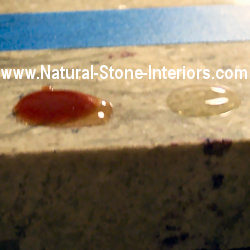
 When sealing granite or natural stone, the sealer is applied directly to the stone with a soft cloth, a brush or even a sprayer.
When sealing granite or natural stone, the sealer is applied directly to the stone with a soft cloth, a brush or even a sprayer.
